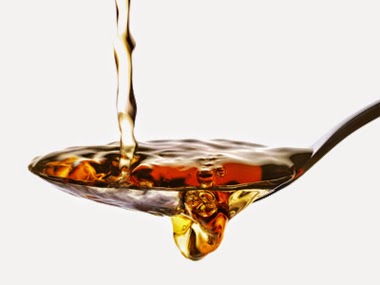Gargling is a simple and remarkably effective way to kill germs and soothe a sore throat. Try one of these homemade gargles next time you're looking to relieve throat pain.
Salt and water
Try grandma's sore throat remedy by mixing 1⁄4 teaspoon salt in 1 cup warm water. (Use the hottest water you can comfortably tolerate. Cold gargles are ineffective.) If you have it, add 1 tablespoon of Listerine for germ-killing power. The briny solution helps rinse away and neutralize acids in the throat, relieving the burning sensation and promoting fast healing of irritated mucous membranes. Note: Mix a fresh batch of gargle for every use. Better to waste a bit pouring it out than to leave it in your glass, where it might become contaminated with bacteria. Also, do not swallow the gargle; spit it out.
Lemon and water
Mix 1 teaspoon lemon juice in 1 cup water for this home remedy for sore throats; the astringent juice will help shrink swollen throat tissue and create a hostile (acidic) environment for viruses and bacteria.
Ginger, honey, and lemon in water
This home remedy mixes 1 teaspoon each of powdered ginger and honey, 1⁄2 cup of hot water, and the juice of 1⁄2 squeezed lemon. Pour the water over the ginger, then add the lemon juice and honey, and gargle. Honey coats the throat and also has mild antibacterial properties.
Hot sauce and water
The capsicum in hot peppers helps alleviate pain and fights inflammation. Add five shakes of ground cayenne pepper (or a few shakes of hot sauce) to a cup of hot water for sore throat relief. It'll burn, but try this gargle every 15 minutes and see if it helps.
Sage and water
Sage can soothe a sore throat and ease painful or swollen nasal passages. One traditional home remedy calls for 1 teaspoon sage, 1⁄2 teaspoon alum, 1⁄4 cup brown sugar, 3⁄8 cup vinegar, and 1⁄8 cup water.
Turmeric and water
This yellow spice is a powerful antioxidant, and scientists think it has the strength to fight many serious diseases. For a sore throat remedy, mix 1/2 teaspoon of turmeric and 1/2 teaspoon of salt into 1 cup of hot water and gargle.
Wheatgrass juice
Another good remedy: Wheatgrass juice. A quick rinse and spit with this chlorophyll-rich liquid helps prohibit bacteria growth and ease throat pain. Held in the mouth for five minutes or so, wheatgrass juice is said to help revitalize weakened gums and stop toothache pain.
Clove tea
Add 1 to 3 teaspoons of powdered or ground cloves to water, then mix and gargle. Cloves have antibacterial and anti-inflammatory properties that can help soothe and heal a sore throat.
Tomato juice
For temporary relief of sore throat symptoms, gargle with a mixture of 1/2 cup tomato juice and 1/2 cup hot water, plus about 10 drops hot pepper sauce. The antioxidant properties of lycopene may help remedy a sore throat faster.
Green tea
Green tea is known to naturally fight infections. Next time you brew a cup, make a little extra and gargle with some of this remedy to kill any bacteria your sore throat may be harboring.
Apple cider vinegar and salt
If your throat is left raw by a bad cough, grab a bottle of apple cider vinegar because germs can't survive in the acidic coating it'll form on your throat. Gargle with 1 tablespoon apple cider vinegar and 1 teaspoon salt dissolved in a glass of warm water; use several times a day if needed. For a gentler treatment, combine 1/4 cup apple cider vinegar and 1/4 cup honey and take 1 tablespoon every four hours.
Goldenseal and water
Gargling with the herbal germ-killer goldenseal (1 1⁄2 teaspoons goldenseal tincture in 8 ounces water) kills viruses and bacteria as it soothes inflamed throat tissue.
Echinacea and water
Echinacea is an herbal virus-killer. Add 2 teaspoons tincture of echinacea to 1 cup water and gargle this home remedy three times daily. In addition to easing sore throat pain, an echinacea gargle will give your immune system the boost it needs to fight the infection.
Myrrh and water
You may be able to speed the healing process with myrrh (a few drops of tincture of myrrh in a cup of water). Highly astringent, myrrh is superb at combating inflammation. It’s an antiseptic too. Gargle six times a day—a bit of an effort, true, but well worth it.
Licorice water
Licorice root can soothe a sore throat and eliminate cough-inducing phlegm; a 2009 study found that post-operative patients who gargled with a licorice solution were less likely to develop a sore throat post-surgery. Mix one teaspoon of licorice syrup or powder with eight ounces of water and swish.
Raspberry tea
Raspberry tea is an old home remedy believed to treat everything from the flu to open wounds. One recipe calls for pouring 1 cup of boiling water over 2 teaspoons of dried tea leaves. Steep for 10 minutes, then strain and let cool a bit. Gargle while warm.
.jpg)









.jpg)






.jpg)














.jpg)

.jpg)